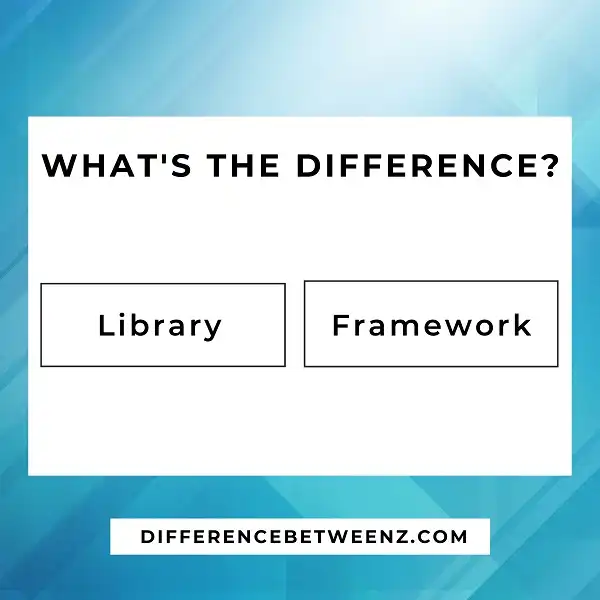Technology changes rapidly and it can be difficult to keep up with all of the nuances that differentiate different types of programming tools like libraries and frameworks. If you’re not sure how these two terms differ, then this guide is for you! Here we will break down what exactly a library and framework are, how they work, as well as their respective pros and cons so that by the end you’ll have a clear understanding of which will best suit your development needs. Ready? Let’s get started!
What is Library?
- Library sources of code are pre-written pieces of computer programming that can be used to help build a program. Library sources make development more efficient, as these snippets of code can save time and effort in having to write everything from scratch. Without the use of library sources, programs would take significantly longer to develop and most likely won’t be as feature rich.
- Library sources offer benefits such as optimization, scalability and robustness that would otherwise need to be coded in manually. Library source can also be reused or shared with other developers so they can benefit from the same resources.
- Library sources are essential for any software development project, allowing developers to achieve complex functionality without having to write all the code themselves.
What is Framework?
Framework source of code is essentially a collection of programming tools and codes designed to help developers more quickly create structured applications.
- A Framework provides the structure that removes much of the guesswork for developers when building software and apps, allowing them to focus on the important features and functions rather than on how various pieces will fit together.
- Framework source codes are created to provide comprehensive software solutions that are easily implemented in many different applications without needing to start from scratch each time.
- Utilizing Framework source code has enabled development teams to work faster and more efficiently, producing apps and programs with increased functionality in a shorter period of time.
- Difference between Library and Framework
Understanding the difference between a Library and a Framework is important for anyone trying to develop software. A Library is a collection of code that can be called upon when needed, whereas a Framework is like a set of guidelines that developers must adhere to.
The Library can offer functions such as sorting data, allowing developers to quickly utilize this without writing extra code. Frameworks dictate how apps should be structured, creating an easier environment in which the app’s development can occur. Both Library and Framework have their own pros and cons so it is up to the developer to decide which one is most beneficial for their project.
Conclusion
A library is a collection of classes that can be used in a project. A framework is an entire infrastructure that provides its own set of services and full control over the application. When you use a library, you are free to choose which classes to use and how to put them together; with a framework, you follow the specific guidelines it provides. In general, frameworks provide better structure for large projects while libraries offer more flexibility.


